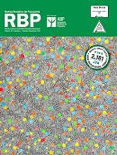
PSYCHIATRY RESEARCH-NEUROIMAGING
Scope & Guideline
Unlocking Mental Health Insights Through Neuroimaging
Introduction
Aims and Scopes
- Neuroimaging in Psychiatric Disorders:
The journal publishes studies utilizing various neuroimaging modalities, including fMRI, PET, DTI, and EEG, to investigate the neural correlates of psychiatric disorders such as schizophrenia, depression, and anxiety. - Impact of Treatments on Brain Function:
Research often focuses on how different psychiatric treatments, including pharmacological, psychotherapeutic, and neuromodulatory approaches, influence brain structure and connectivity, providing insights into treatment efficacy. - Transdiagnostic Approaches:
The journal emphasizes transdiagnostic research that explores shared neurobiological mechanisms across different psychiatric conditions, promoting a broader understanding of mental health. - Innovative Methodologies:
It encourages the use of novel methodologies, including machine learning and advanced statistical analyses, to improve diagnostic accuracy and predict treatment outcomes in psychiatric populations. - Developmental and Lifespan Perspectives:
The scope includes studies examining neurodevelopmental aspects of psychiatric disorders, considering how brain changes occur over the lifespan and their implications for treatment and intervention.
Trending and Emerging
- Machine Learning Applications:
There is a growing trend towards applying machine learning techniques to analyze neuroimaging data, enabling more sophisticated models for predicting treatment outcomes and classifying psychiatric disorders. - Neuroinflammation and Mental Health:
Research exploring the role of neuroinflammation in psychiatric conditions is on the rise, emphasizing the need to understand how inflammatory processes influence brain function and behavior. - Personalized Medicine Approaches:
The journal is increasingly featuring studies that advocate for personalized medicine in psychiatry, utilizing neuroimaging to tailor treatments based on individual brain profiles and responses. - Integration of Multi-Modality Imaging:
There is a notable increase in studies that integrate multiple neuroimaging modalities (e.g., combining fMRI with EEG or PET) to provide a more comprehensive understanding of brain function in psychiatric disorders. - Neural Correlates of Comorbid Conditions:
Emerging research is focusing on the neural correlates of comorbid psychiatric conditions, exploring how overlapping symptoms and brain mechanisms can inform better treatment strategies.
Declining or Waning
- Focus on Traditional Neuroimaging Techniques:
There has been a noticeable shift away from reliance solely on traditional neuroimaging methods like structural MRI, with more emphasis now placed on dynamic and functional imaging techniques that capture real-time brain activity. - Single Disorder Studies:
Research focusing exclusively on single psychiatric disorders is becoming less common, as the journal increasingly prioritizes studies that adopt a transdiagnostic or integrative approach. - Basic Neuroscience Research:
There is a gradual decline in papers centered on basic neuroscience mechanisms without direct clinical implications, as the journal is leaning towards studies that offer practical insights into treatment and intervention. - Longitudinal Studies:
While longitudinal studies are crucial for understanding the progression of mental disorders, there seems to be a decrease in such publications, possibly due to the complexity and resource demands associated with long-term research. - Psychopharmacological Studies without Imaging:
Research that investigates psychopharmacological effects without accompanying neuroimaging data is becoming less frequent, as the journal increasingly emphasizes the integration of treatment effects with neuroimaging outcomes.
Similar Journals

NEUROPSYCHOLOGY REVIEW
Illuminating the Links Between Neural Mechanisms and BehaviorNEUROPSYCHOLOGY REVIEW is a prestigious journal published by Springer, dedicated to the exploration of cognitive processes and behavior through neurological and psychological perspectives. With its ISSN 1040-7308 and E-ISSN 1573-6660, this journal holds a distinguished position in Q1 of the Neuropsychology and Physiological Psychology category, ranking at #3 out of 76 with an impressive 96th percentile in Scopus. Since its inception in 1990, it has provided a critical platform for researchers, professionals, and students to disseminate and engage with comprehensive reviews and empirical research, promoting a deeper understanding of the interplay between neural mechanisms and psychological phenomena. Aimed at fostering interdisciplinary collaboration and advancement in the field, NEUROPSYCHOLOGY REVIEW invites contributions that push the boundaries of knowledge and stimulate ongoing debates in neuropsychology, making it an invaluable resource for anyone interested in the latest scientific advancements within this dynamic area.

NEUROIMAGE
Pioneering Insights into Brain Structure and FunctionNEUROIMAGE, published by Academic Press Inc Elsevier Science, is a leading international journal dedicated to advancing the fields of cognitive neuroscience and neurology. With an impressive impact factor that places it in the Q1 category for both disciplines, NEUROIMAGE stands at the forefront of disseminating high-quality research that employs advanced imaging methods to elucidate the workings of the human brain. As a pivotal platform since its inception in 1992, this journal has continued to thrive, embracing Open Access publishing since 2020 to ensure wider dissemination and accessibility of cutting-edge findings. With a Scopus rank of 7th in cognitive neuroscience and 13th in neurology, and situated in the 94th and 93rd percentiles respectively, NEUROIMAGE serves as an invaluable resource for researchers, professionals, and students alike seeking to explore the intricate relationships between brain structure and function. For more information, please visit their office at 525 B ST, STE 1900, SAN DIEGO, CA 92101-4495.

Frontiers in Human Neuroscience
Connecting Minds: Where Neuroscience Meets Behavioral ScienceFrontiers in Human Neuroscience is a premier open access journal published by FRONTIERS MEDIA SA, dedicated to advancing the understanding of the complexities of human neuroscience. With an ISSN of 1662-5161, the journal has established its prominence in various fields, achieving a Q2 ranking in categories such as Behavioral Neuroscience, Neuropsychology and Physiological Psychology, and Psychiatry and Mental Health as of 2023. Since its inception in 2008, Frontiers in Human Neuroscience has consistently contributed to the scholarly dialogue by offering a platform for innovative research that bridges the gap between neuroscience and behavioral science. The journal's rigorous peer-review process and commitment to open access ensures that findings are readily available, promoting collaboration and progress within the academic community. With an impact on neuroscience disciplines, it stands at the forefront of the field, inviting researchers, professionals, and students alike to engage with cutting-edge studies and developments. The journal's address is located in Lausanne, Switzerland, where it continues to flourish as a hub for neurobiological exploration.

PSYCHOPHYSIOLOGY
Leading the Way in Experimental and Cognitive Psychology.PSYCHOPHYSIOLOGY, published by WILEY, stands as a leading journal in the intersection of psychology and physiology, contributing significantly to our understanding of the brain and body connection since its inception in 1964. With an impressive scope covering areas such as biological psychiatry, cognitive neuroscience, and neuropsychology among others, the journal has earned multiple Q1 rankings in these critical domains as of 2023, reflecting its high impact in the field. The journal ranks particularly well in categories such as Experimental and Cognitive Psychology and neurology, indicating its status as a pivotal resource for professionals and researchers committed to advancing knowledge in psychophysiological studies. Furthermore, with an e-ISSN of 1469-8986, PSYCHOPHYSIOLOGY is accessible to a global audience, although it is not part of the Open Access movement, ensuring that its rigorous research remains a trusted source for academic excellence. By engaging with this journal, readers can expect to discover pioneering research and significant findings that push the boundaries of current understanding, making it an essential publication for those invested in the advancements of psychological and physiological sciences.

Journal of Experimental Psychopathology
Innovating Understanding in Mental Health ScienceJournal of Experimental Psychopathology, published by SAGE Publications Ltd, stands as a pivotal platform for advancing the understanding of psychological disorders and their underlying mechanisms. Established in 2015, this open access journal encourages a broad dissemination of research findings, adhering to its mission to foster innovation in the fields of Clinical Psychology and Psychiatry and Mental Health. With an established impact recognized in its Q3 quartile rankings for both fields as of 2023, the journal aims to bridge the gap between experimental research and clinical application. Researchers, professionals, and students are invited to engage with cutting-edge studies, all while benefiting from the journal's commitment to open access publishing since 2018, ensuring that knowledge is easily accessible to all. The journal’s office is strategically located in London, UK, serving a global academic community keen on exploring the complexities of psychopathology.

ACTAS ESPANOLAS DE PSIQUIATRIA
Bridging knowledge and practice in mental health.ACTAS ESPANOLAS DE PSIQUIATRIA, published by the renowned JUAN JOSE LOPEZ-IBOR FOUNDATION, serves as a vital resource in the field of psychiatry and mental health, particularly within the Spanish-speaking academic community. With its ISSN 1139-9287 and E-ISSN 1578-2735, this journal has been a critical platform for disseminating high-quality research since its inception in 1996 and continues to contribute valuable insights until 2024. As a recognized journal in the Q3 category of psychiatry and mental health, it ranks 387 out of 567 in Scopus, placing it within the 31st percentile, thereby indicating a growing influence among its peers. The journal’s open access options enhance its accessibility, encouraging a broader readership to engage with contemporary research issues in mental health. Researchers, professionals, and students alike will find ACTAS ESPANOLAS DE PSIQUIATRIA essential for staying informed on the latest developments and innovations in psychiatric practice and research.

Brain Imaging and Behavior
Unlocking Potential: Pioneering Research in Brain ImagingBrain Imaging and Behavior is a premier journal published by SPRINGER, dedicated to advancing the understanding of the relationship between brain function and behavior through innovative imaging techniques. Since its inception in 2007, the journal has provided a crucial platform for researchers and professionals in fields such as Behavioral Neuroscience, Cognitive Neuroscience, and Psychiatry and Mental Health. With an impressive ranking within the Q1 category in Radiology, Nuclear Medicine and Imaging and maintaining strong Q2 status in several other categories, the journal is positioned as a leading resource for groundbreaking research. The journal aims to disseminate high-quality studies that explore neurobiological underpinnings of behavior, utilizing cutting-edge imaging technologies. Although it is not an open-access journal, the visibility and impact of published works in Brain Imaging and Behavior continue to influence the scientific community significantly, underscoring the critical intersection between imaging science and neuroscience.

BRAIN TOPOGRAPHY
Illuminating the Pathways of the Human BrainBRAIN TOPOGRAPHY is an esteemed academic journal dedicated to the exploration of topographical mapping of brain activities, cementing its reputation as a cornerstone in the fields of anatomy, neurology, and radiology. Published by SPRINGER, this journal has been a vital resource since its inception in 1988, with a steadily increasing impact reflected in its 2023 rankings, including Q1 categories in Anatomy and Radiology. With its significant contributions to understanding cerebral structure and function through advanced imaging technology, BRAIN TOPOGRAPHY is essential for researchers, professionals, and students seeking to stay at the forefront of neuroscientific advancements. The journal benefits from its strong academic stature, positioned within the 60th to 71st percentiles across several Scopus ranks, further enhancing its visibility in an evolving research landscape. Although not an open-access journal, its rigorous peer-review process ensures the dissemination of high-quality research that significantly contributes to the scientific community. Set against the backdrop of a global landscape, this journal continues to shape discussions on cerebral topography, offering a platform for innovative studies and critical insights.

Brazilian Journal of Psychiatry
Elevating psychiatric discourse for a healthier future.The Brazilian Journal of Psychiatry is a prominent peer-reviewed journal dedicated to advancing the field of psychiatry and mental health, published by the Associação Brasileira de Psiquiatria. With an impressive Q2 ranking in the Psychiatry and Mental Health category for 2023 and a Scopus rank of #130 out of 567, this journal serves as a vital resource for researchers, clinicians, and students alike. Since its transition to Open Access in 1999, it has aimed to disseminate high-quality research, innovative practices, and critical insights relevant to mental health in Brazil and beyond. The journal's focus spans various topics in psychiatry, aiming to bridge the gap between research and clinical application, making it essential reading for professionals and academicians committed to improving mental health outcomes. With a commitment to fostering scholarly discourse, the Brazilian Journal of Psychiatry not only enriches the academic landscape but also enhances the practice of psychiatry through its widespread accessibility and dedication to excellence in research.

Frontiers in Psychiatry
Innovating Solutions for Mental Well-beingFrontiers in Psychiatry is a leading journal dedicated to advancing research within the field of psychiatry and mental health. Published by FRONTIERS MEDIA SA, the journal has established a commendable reputation since its inception, reflected in its Q1 status in the 2023 Psychiatry and Mental Health category and a robust ranking of 142 out of 567 in the Scopus database. With an open access model initiated in 2009, Frontiers in Psychiatry aims to disseminate high-quality research to a global audience, fostering collaboration and innovation among researchers, clinicians, and students alike. The journal covers a broad spectrum of topics, including neurobiology, psychosocial factors, treatments, and public health implications of mental disorders, ensuring comprehensive representation of contemporary psychiatric science. Located in Lausanne, Switzerland, and running until 2024, the journal not only emphasizes the importance of mental health research but also encourages interdisciplinary discourse, making it an essential resource for anyone invested in the well-being of individuals and communities alike.